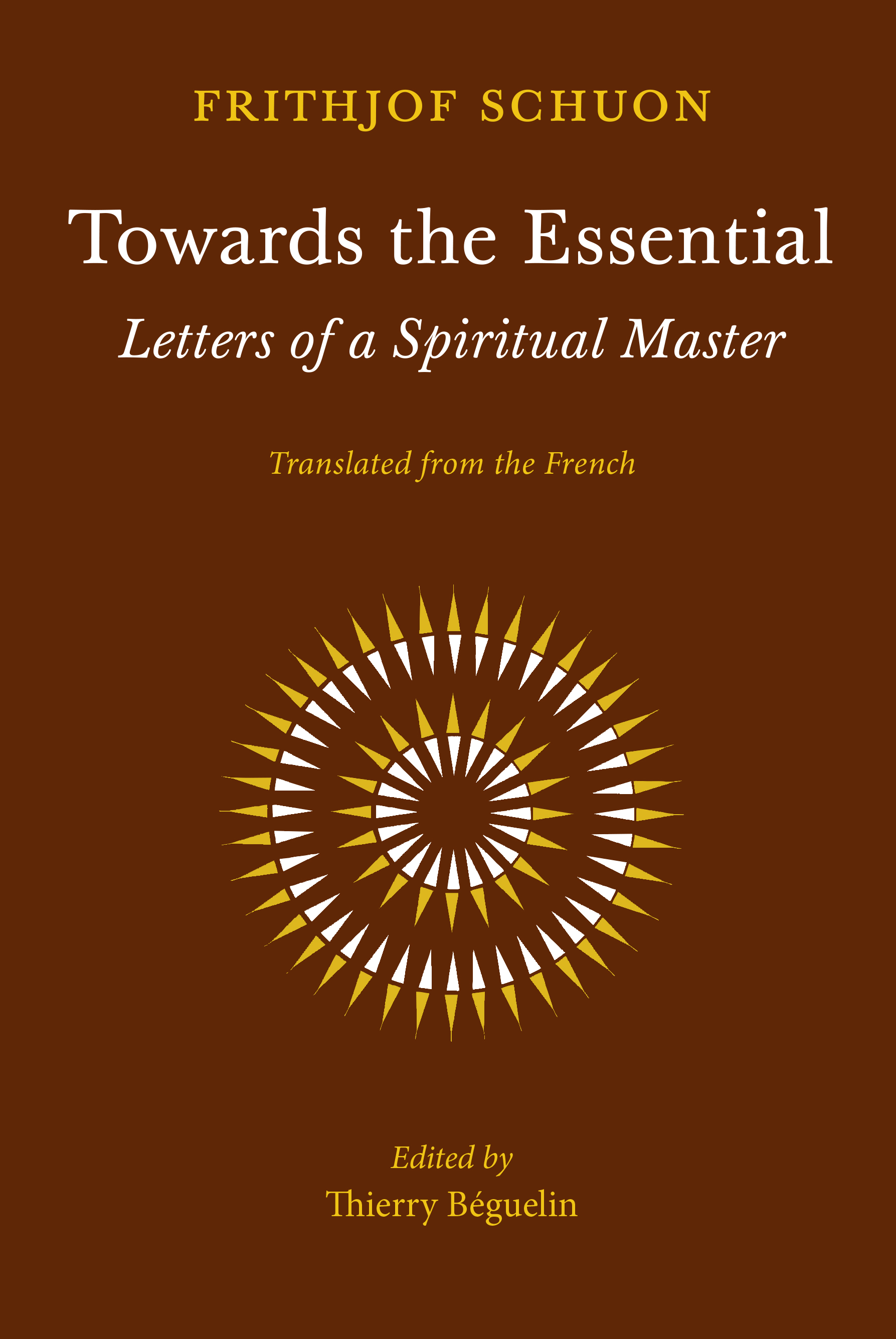Welcome to our last newsletter for 2021, with best wishes for the new year.
• We are happy to launch a new publication, a collection of letters by Frithjof Schuon with correspondents from various religious traditions. The selection, titled Towards the Essential, gives precious insights into the spiritual guidance given by Schuon to disciples and seekers from all over the world.
To be alone with God—without bitterness towards anyone, this is a categorical condition—is a wonderful thing; this solitude living from the invocation of the Divine Name. Our life is there before us, and we must live it; we cannot escape it… It is easier—or less difficult—to be alone on a desert island, than to be among men who do not understand us. But if we have no choice, then we are obliged to accept the destiny God gave us and to do the best we can with it. Through prayer, we can transmute lead into gold, alchemically speaking; in a certain measure we can even transform those around us.
• We present the Introduction to one of the major works by late Rabbi Jonathan Sacks, The Great Partnership: Science, Religion, and the Search for Meaning, where he makes the case for a nuanced, traditional and informed understanding of “science”, of its place in society and its relation to the sacred.
When a society loses its religion it tends not to last very long thereafter. It discovers that having severed the ropes that moor its morality to something transcendent, all it has left is relativism, and relativism is incapable of defending anything, including itself. When a society loses its soul, it is about to lose its future.
• In the same vein, reflecting further on the pre-modern understanding of scientia as a divinely-given faculty and as a necessary part of the social fabric, we close our selection with the article “In between the mind and the heart: Katip Çelebi’s concept of ‘Ilm”.
Çelebi, through his open-mindedness and multifaceted works, represented the early modern enlightened Ottoman scholar, who recognised the healing merit and uniting power of ‘ilm in a rapidly changing society…. He explored the scientific, religious, and moral dimensions of ‘ilm and its agency in restoring peace, justice, and tolerance to Ottoman society…. Oscillating between his heart and his mind, he recognised the merits of both religious and rational sciences as two complementary and necessary paths to truthful knowledge and social harmony.




